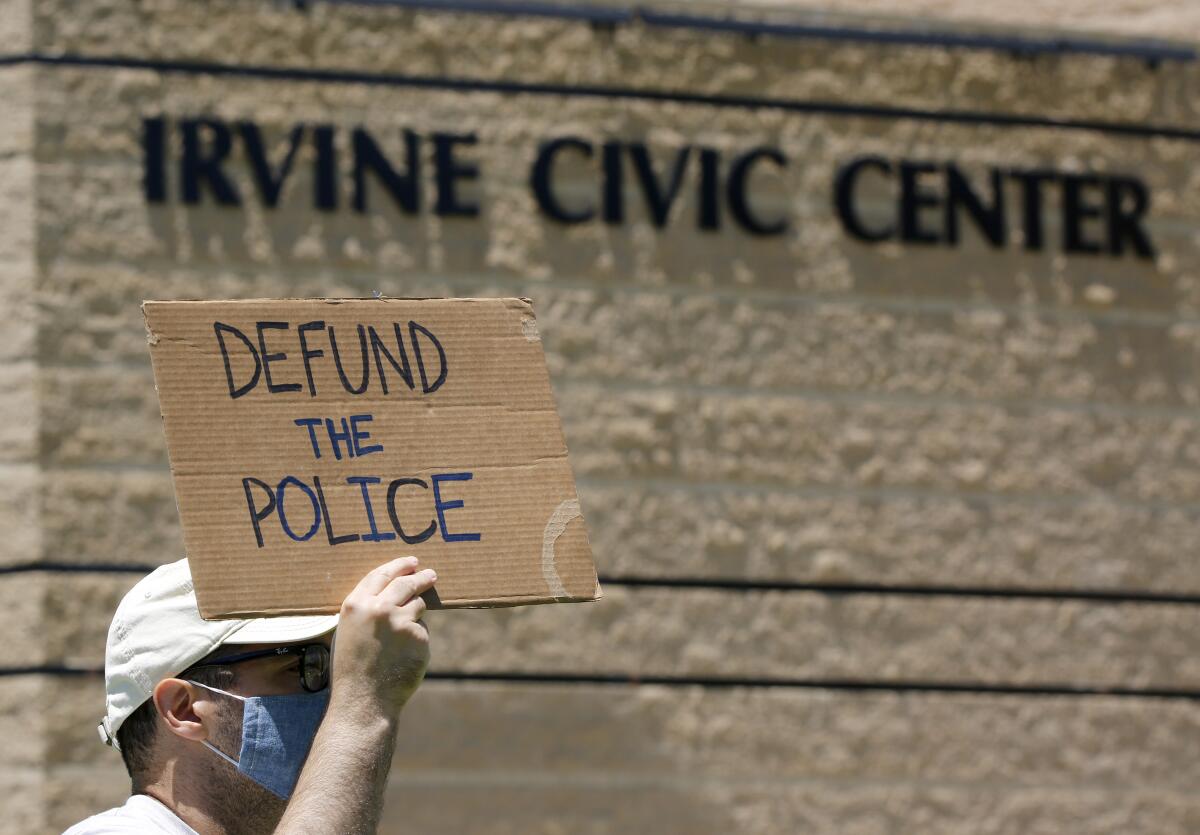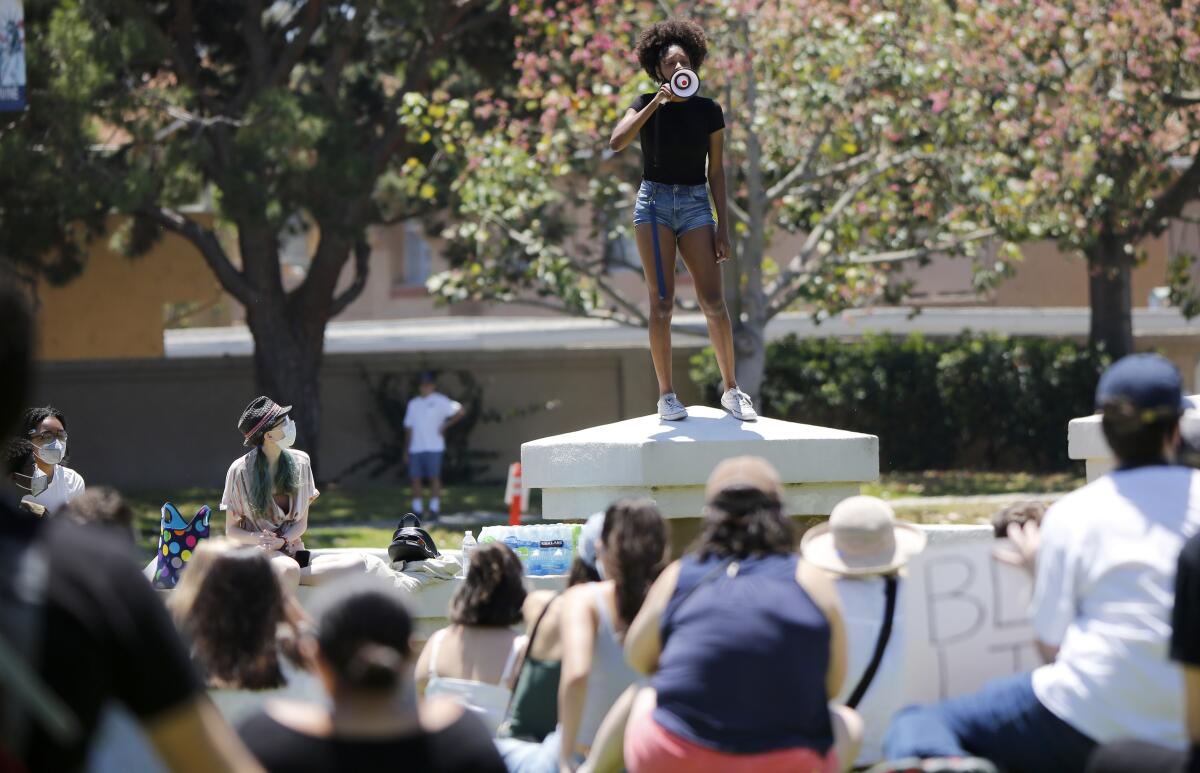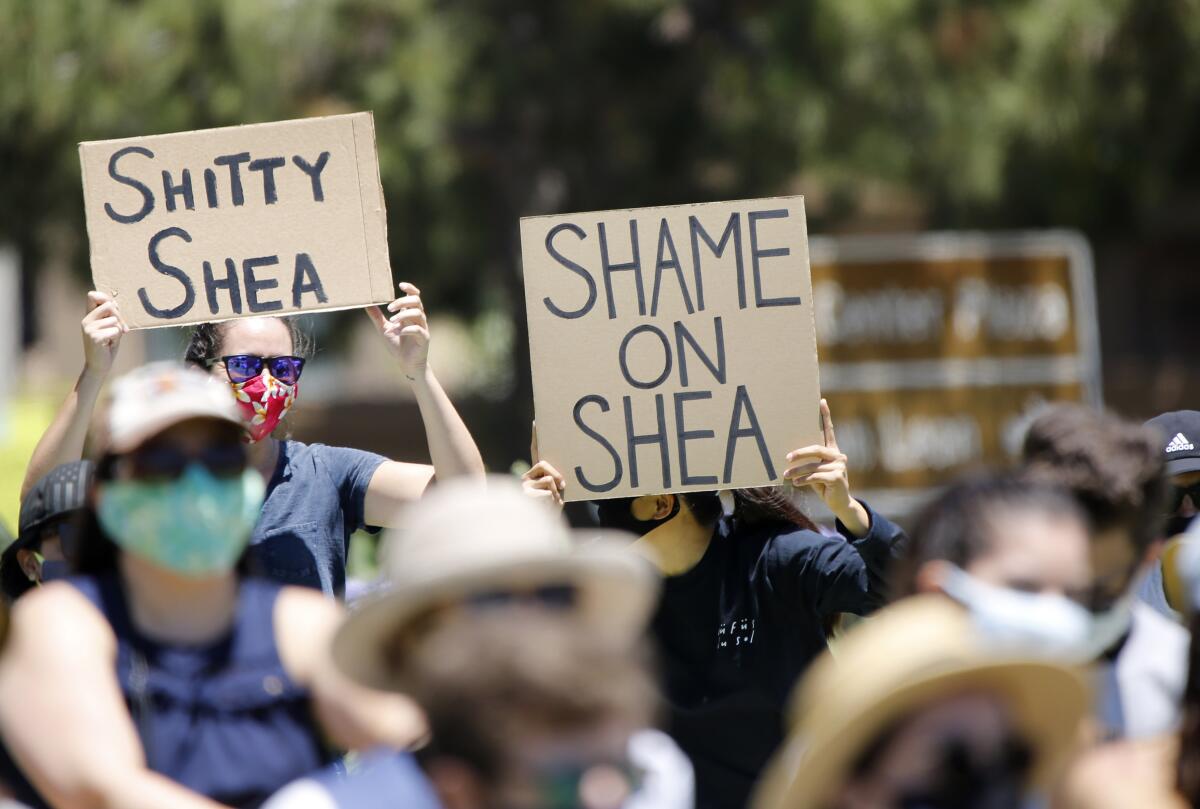Irvine approves body-worn cameras for police amid police brutality protests

- Share via
Amid protests against police brutality, the Irvine City Council on Tuesday night unanimously approved body-worn cameras for the city’s police department.
Irvine will join a dozen other public safety agencies in Orange County that use body cameras, including the Sheriff’s Department and departments in Huntington Beach, Anaheim, Santa Ana and Fullerton.
Irvine officers are expected to begin wearing the cameras in the first or second quarter of next year, Police Chief Mike Hamel said at the meeting. Irvine officers have used dash cams since the mid-1990s and worn audio recorders since the mid-2000s.
“The implementation of a body-worn camera program, in my opinion, is just the next step in our evolution of memorializing our contacts with the public,” Hamel said, pointing out that the council had previously budgeted for a body-worn camera pilot program next year. “However, given the current state, I thought it would be important for a variety of reasons to bring this item forward now.”

According to a staff report, the body cameras will increase public trust and transparency — and will “hold officers accountable.”
The department will now begin searching for a body-worn camera vendor and return to the council with recommendations once that search is completed. Hamel estimated that it will cost anywhere from $620,000 to $1-million to get the body cam program up and running. There will be recurring annual costs of $300,000 to $700,000, he said.
“Looking at the dynamics of what is going on in the national level, I think, though I have made it very clear our police department is stellar, we are far ahead of so many cities in this nation ... I would just say implementing this program even though it’s expensive, it gives us another level of protection for not only our residents but also our officers as well,” said Mayor Christina Shea.
Shea has been under fire in recent weeks for comments she made criticizing Black Lives Matter protesters. Several peaceful Black Lives Matter protests have been held outside Irvine City Hall since the death of George Floyd after Minneapolis Police Officer Derek Chauvin knelt on his neck for nearly nine minutes late last month.

Several residents submitted comments to the council, some showed support for the cameras and others said it wasn’t enough to deter police brutality.
“If body-worn cameras were really designed to hold corrupt and reckless police accountable, an open embrace of this equipment would not be as easily forthcoming from officials,” said resident Marie King. “Defund the police and invest in the community.”
“This is a step in the right direction, making Irvine’s community safer and more equitable to all,” resident Heidi Chen said.
Costa Mesa recently earmarked nearly $1 million for its own program. Hamel said nine public safety agencies in Orange County don’t currently use body-worn cameras.
About 47% of small- and medium-sized law enforcement agencies use body-worn cameras in the U.S., according to the Bureau of Justice Statistics. About 80% of large police agencies, similar in size to that of Los Angeles or Boston public safety agencies, have body-worn camera programs.
Hamel said Irvine is considered medium-sized.
All the latest on Orange County from Orange County.
Get our free TimesOC newsletter.
You may occasionally receive promotional content from the Daily Pilot.




